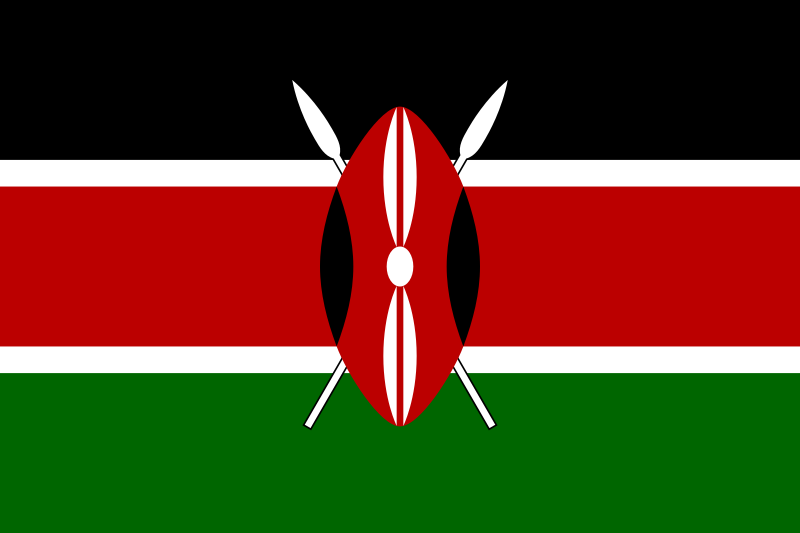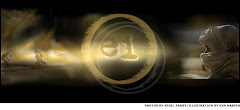
Full Text At the same time, the citizens of Israel have just as much cause to be alert to the needs and rights of the Palestinian people (both within and outside Israel) as they have to their own. After all, in the sense that we share one land and one destiny, we should all have dual citizenship.
It seems amazing to me, naive foreigner perhaps, that an Israeli should choose to accept Palestininan citizenship. It's exciting to me. It's wonderful. That said, I think I have to agree with Sam Bahour in his intro to Barenboim's text: how can Israel ever be democratic as a 'jewish' state? How can a 'jewish' state 'integrate' a palestinian (ie. non-jewish) minority? How can any state which is defined along religious lines ever be democratic? I sincerely Barenboim hope is not giving in to the easy retoric of 'jewish' as a nationality and not as a religion. That will only be true when anyone can, even theoretically, become jewish, regardless of who their mother is, and without having to go through conversion, just as anyone can, in theory, become american, british or french. Never, basically.
31.1.08
Passports to progress (Daniel Barenboim)
Publié par
Jez
à
31.1.08
|
![]()
Libellés : binationalism, israel, jews, palestine, palestinians, Sam Bahour
30.1.08
Semantics
VOAA senior U.S. diplomat says "ethnic cleansing" is underway in Kenya's Rift Valley in the aftermath of last month's disputed presidential election, but she says the violence does not rise to the level of genocide.
What exactly is the difference between 'ethnic cleansing' and 'genocide'? And, if there is a difference, what is the purpose of a 'senior U.S. diplomat' pointing out the difference in this particular case? Will it determine the appropriate response from the U.S.?
One is entitled to demand, that the origins of the violence be properly addressed, as well as the responsibilities of the democratically elected (?) government of Kenya, those of the political opposition and of the international community. But what am I complaining about?! As we can see above, serious talks are taking place while, to quote a phrase, the people suffer.
Publié par
Jez
à
30.1.08
|
![]()
Libellés : ethnic clashes, ethnic diversity, genocide, Kenya, propaganda, violence
28.1.08
Suharto dies: we should cry?
 DemocracyNow!
DemocracyNow!
DemocracyNow! 12/11/1997
Allan Nairn
It turns out the uplifting feeling I experienced when the anti-(Irak)war, fluent-chinese-speaking, environmentally-friendly Kevin Rudd was elected in Australia may have been quite naive.
What a pity President Carter wasn't as aware, in the late Seventies, of the 'situation' in East Timor as he is today of the 'situation' the Palestinians are in. Does that mean, I wonder, that a president today ought to have more information than three decades ago? In that case, there is hope. Or does it mean, that a president has less information than the rest of us? In that case, we're f***ed.
Image of the day
Publié par
Jez
à
28.1.08
|
![]()
Libellés : agriculture, fair trade, resistance, South Korea, trade deal, US
24.1.08
Recognition
Now and again (quite regularly) we hear about how Hamas and other Palestinian nationalist forces must recognise Israel before they can be recognised or before a Palestinian state can come into existence. Now, there is no Palestinian state. Israel exists. Israel's existence is hardly in danger given the power of it's military and that of it's major ally, the USA. Hamas recognition or lack thereof does not affect Israel's existence in any way. The existence of a Palestinian state, on the other hand, depends entirely on Israeli and US goodwill.
When it comes to recognition of a state, what of Israel's recognition of the Republic Of China? Of course, wether or not Israel recognises Taiwan is not really relevant, since the two countries have economic relations anyway. How about Tibet, then? Do the Tibetans not have a right to a homeland? Judging by China's fury whenever the Dalai Lama is met by world political leaders, it's safe to say recognition of Tibet by world governments would not count for nothing.
18.1.08
Follow-up on the Hormuz 'incident'
FAIR After Iran released its own video recording of the event--which showed a more routine exchange between the U.S. and Iranian vessels--the Pentagon distanced itself from the claim that the Iranian boats had issued a verbal threat. Three days after its original report citing unnamed officials who implied the threat had been issued from the boats, the L.A. Times (1/11/08) "clarified" that a key part of the official version of events was inaccurate: "Clarifying earlier accounts, officials said Thursday that they did not know whether a radio call in which a voice threatened to 'explode' the U.S. ships came from the small boats or whether it came from another source." Retreating from the account that definitely attributed the transmission to the speedboats, the officials now said only that "the radio threat was received at the same time as the encounter with the Iranian boats."
Publié par
Jez
à
18.1.08
|
![]()
16.1.08
Congressman Kucinich finally in the debate

Dennis Kucinich was disinvited by MSNBC from the Democratic presidential debate yesterday. A judge ruled, that the debate could not go ahead without him, but the ruling was overturned by an appeal.
Democracy Now! invited Kucinich today, to answer the questions posed in the Las Vegas debate.
Publié par
Jez
à
16.1.08
|
![]()
Libellés : corporate media, US presidential election
14.1.08
A Gruyère state for Palestinians?
Bush called for an end to the Israeli occupation and the establishment of a viable Palestinian state. But he did not back down from his endorsement of Israel’s intent to retain large Jewish-only settlement blocs that Palestinians say will make peace impossible. Bush called on Israel to dismantle unauthorized settlement outposts scattered across the West Bank. But he did not criticize Israeli Prime Minister Ehud Olmert’s declaration that Israel’s pledge to freeze settlement expansion only applies to those settlements that Israel doesn’t intend on keeping. Israel agreed to freeze settlement activity under the U.S.-backed road map but has continued to build in East Jerusalem and its large West Bank settlements. For the first time President Bush called for a compensation fund for Palestinian refugees who lost their homes in 1948. He did not offer details. The value of lost Palestinian land is estimated in the hundreds of billions of dollars. President Bush’s visit to the West Bank came after a day of talks in Israel. The Independent of London reports Bush’s meeting with Israeli Prime Minister Ehud Olmert “had the flavor of a love-in on a grand scale which transcended mere diplomacy.” In Gaza, Hamas official Sami Abu Zuhri dismissed Bush’s visit.
Publié par
Jez
à
14.1.08
|
![]()
Libellés : israel, palestine, palestinians, US
11.1.08
Bush Peace Hallucinations Continue
Both Bush and Olmert did send one united message to the world. The
two-state solution was still the aim of the negotiations. Reading between the
lines, we can infer that the specter of a single state, from the Mediterranean
to the Jordan River, is the most frightening vision of all. The terrifying
notion of Palestinians (Muslims and Christians) and Israelis (Jews, Muslims, and
Christians) living side by side with equal national and civil rights, has never
been so apparent since the struggle in South Africa to end racist white
supremacy under Apartheid. To ensure that a one-state solution does not
materialize in historic Palestine, the U.S. and Israel talk about a two-state
solution, but meantime, the U.S. bankrolls Israel as it continues to create
facts on the ground that make any viable Palestinian state
impossible.
8.1.08
Skirmish and Presidential tour

According to the Pentagon there has been a skirmish between Iranian and US forces in the Strait of Hormuz.
Apparently behind the harassment of US warships by Iranian Revolutionary Guards lies Iran's imperial ambitions. While, according to US leadership, the Iranian provocation is dangerous, the leadership in Teheran has downplayed the confrontation, calling it a case of routine identification. While this confrontation was taking place, President George W Bush was preparing for a tour of the Middle East starting in Israel. Following the reappraisal of the so-called Iranian nuclear threat by the National Intelligence Estimate, it is belived, that Bush will be seeking to shore up support ahead of a possible invasion of Iran.
Publié par
Jez
à
8.1.08
|
![]()
Libellés : Bush, confrontation, Iran, israel, middle east, US
3.1.08
Thoughts for Kenya

Watching and hearing about the recent violence in Kenya, I felt at first, and as usual, frustrated and helpless. Oh sure, the 'western' powers have voiced their concern with regards to electoral irregularities and of course the violence which ensued. As we must all have realised by now, if the 'democratic West' says there were irregularities, then the reality must be much worse than the picture painted in our official media. But what exactly is the 'democratic West' intending to do about it? We've seen their reaction to the massacre of the burmese people. We've seen how much russian democracy matters to them. We've seen how the people of Darfur are still waiting for the 'West' to deliver them from their tyrants and bring 'democracy' to their country. So, what exactly should we expect our leaders to do for the Kenyans? However, I feel the need to react to the image of an ethnic war painted by the media. I have no doubt, that the kenyan media are also responsible. That Kenya is an artificial country created by colonialism is clear. That it is a country with various ethnic groups, of which the main two are the Kikuyu and the Luo, is also a reality. That said, politically it is one country, as is the United States of America. In the US, there are many ethnic groups, and these groups are also special interest groups, some more powerful than others: Latinos, Blacks, Jews, Cubans, WASPS...The leadership, however, is, for better or for worse, the american leadership. It goes without saying, that that leadership is dominated by white males and predominantly protestants. However, when George W Bush was elected in dubious circumstances, it wasn't a case of the white anglo-saxon protestant community oppressing other communities. If oppression of certain communities exists, and it certainly does, it is not done so by the dominant community but by the power in place. If whites in the US are generally treated better by the power, that does not mean, that whites are all out to downtread members of other groups. In fact, I would say, that on different levels, it is all the american people (and citizens of the world!) who are oppressed by the power. Through poverty, repressive laws, propaganda lies and more, the leadership keeps the population under control. It seems, to me, admittedly an outsider (just as much to the US as to Kenya), that in Kenya it is also the power in place which is oppressing the people of Kenya. If it is true, and it is, that the kenyan leadership is dominated by Kikuyus, that should not be understood to mean, that Kikuyus all have their boots on the heads or chests of Luos, Masais, Samburus or others (for yes, if we were to believe our media, only the Kikuyus and Luos count in this dispute). The question of independence for ethnic groups in countries such as Kenya or in the case of the Kurds of Irak is of course a complicated one. It is far from being a black&white one. Should countries break up or should unity be maintained? I believe the very least is to give real autonomy to ethnic groups, where they are effectively living apart from other groups and where their culture and way of life is endangered by more dominant groups. However, if the people of a given country, despite their ethnic affiliations, claim to be nationals of the country, then they should treat the leadership as a national leadership, and it's oppressive power to be directed at all citizens. If Kibaki and his accolytes are holding on to power through electoral fraud, they are not doing so on behalf of Kikuyus, just as Bush's interests are not that whites should dominate american life.
These are my thoughts of the moment, and nothing more. As usual open to discussion.
Publié par
Jez
à
3.1.08
|
![]()
Libellés : colonialism, ethnic clashes, ethnic diversity, Kenya, oppression, US









